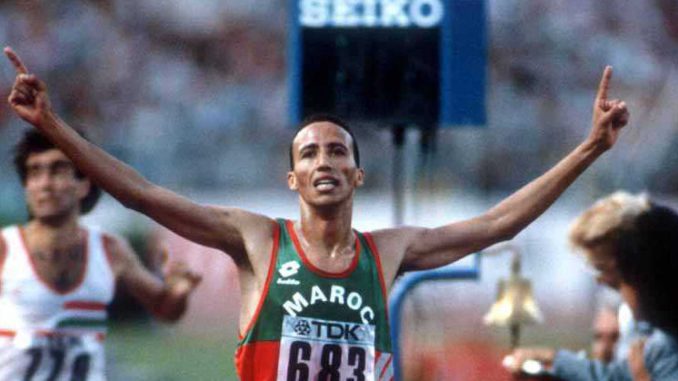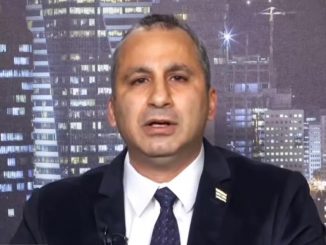
Said Aouita is the champion who honored and made Moroccans proud after being crowned the gold medal at the 1984 Los Angeles Olympic Games and winning the 1987 World Athletics Championships and breaking many world records, thus becoming an undisputed Moroccan and Arab legend.
He was born in Kenitra in 1959 into a modest family and continued his studies in his city until high school before moving to Fez. Impressed by football from an early age, he wore the MAS jersey for many years before deciding, on the advice of his coach, to run and track and field. His destiny led him to Casablanca, where he began training at the “Casablancaise” stadium, before attracting the attention of specialists, and in particular Aziz Daouda, who became his sponsor and the first to help him.
After his retirement, Aouita returned to school, but this time at the University of Phoenix, Arizona, USA, where he earned an MBA, before starting his own sportswear business in Uncle Sam’s country, under the name “Aouita International Sports Wear”.
Aouita has a strong and uncompromising personality. For this reason, he spent only a short time as head of the technical department of the Moroccan Athletics Federation in 2008, a position he quickly left for the Al-Jazeera television channel in Qatar, where he worked as an analyst. This controversial channel has benefited from his name and history. For his part, he took advantage of the channel’s audience rate to settle his accounts with the federation, which some officials have accused him of on several occasions.
His uprightness and frankness did not allow him to embark on a political career in which lies and shenanigans are the order of the day. Disappointed by his experience as a candidate in the 1997 elections in Casablanca under the USFP, he decided to turn away from politics for good, preferring sports and business analysis.
The Moroccan Olympic champion enjoyed a special affection from the late HM King Hassan II. It was therefore not surprising that he gave the name “Aouita” to the express train that Moroccans used, in tribute to what this eminent sportsman gave to sport in his country.


Be the first to comment